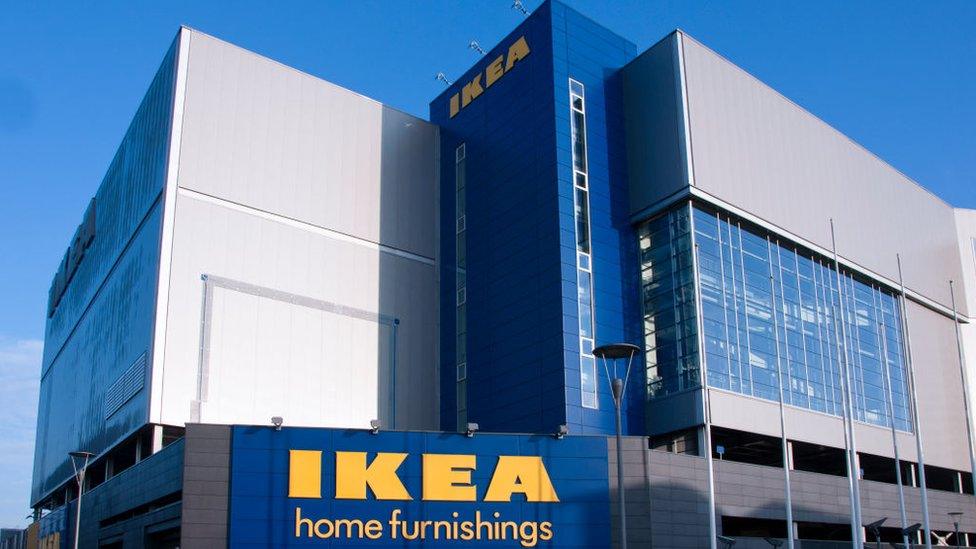Are we still in love with Ikea?
- Published
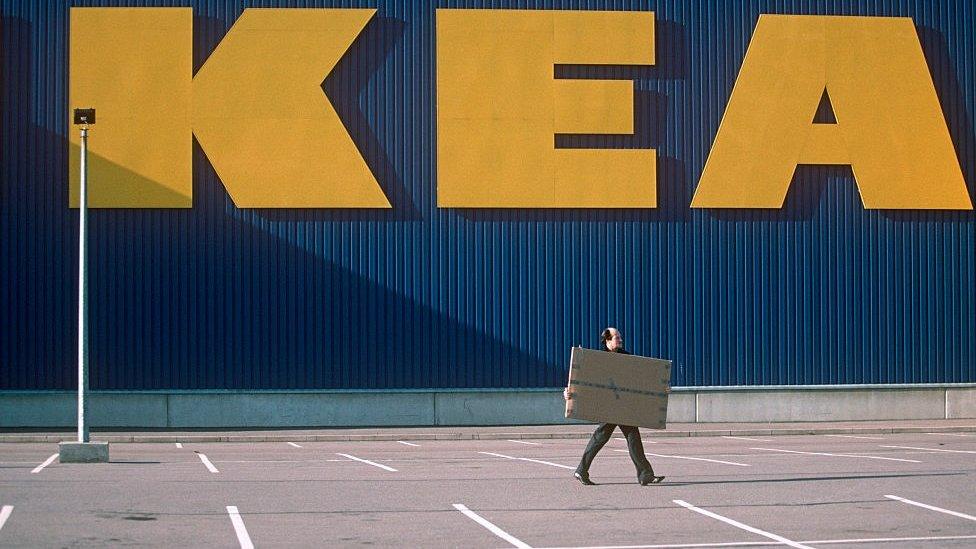
Ikea has announced the closure of its Coventry store - the first big UK outlet the company has ever shut. The news saw "Ikea" trend on Twitter and caused a stir among the brand's many fans. With the chain raising concerns over visitor numbers, do people still want the Ikea experience?
Louise Jenkins and her friend Amy Pulford feel upset. They have been visiting Ikea since the store opened in 2007 and news of its imminent closure has come as a blow.
"We love the Ikea lifestyle," says Ms Jenkins. "My rug, my furniture, even my kitchen gadgets - everything is from this shop."
On Tuesday, the Swedish firm announced it was closing the £35m city centre store after years of "consistent losses" and fewer than expected visitors.
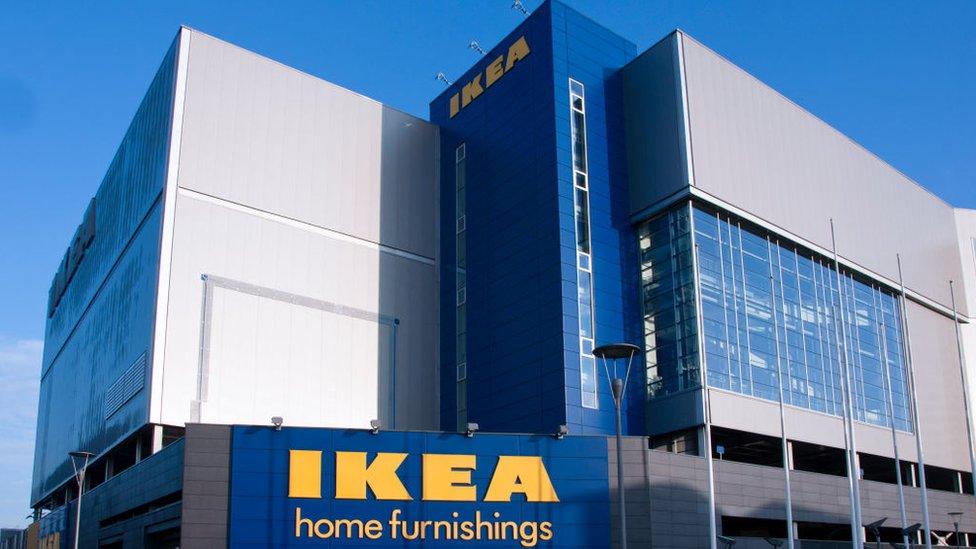
Coventry's seven-floor Ikea cost £35m - but failed to attract large numbers of shoppers
But it rejected suggestions there were wider problems with its brand. It said it faced local rather than national issues and suggested the store's seven levels had never proved cost-effective and had also adversely impacted on the customer experience.
It added there was a local preference for shopping at retail parks, rather than the city centre.
Ikea - which has 22 UK stores - also stated it was committed to UK growth. But it did concede it was contending with the lure of online shopping. And on Wednesday, the internet was not far from the thoughts of Coventry customers. Among them, Ms Jenkins and Pulford.
They are fans of the physical shopping experience and do not fancy e-commerce. Ikea's website, they said, meant having to pay for the firm's "really expensive" delivery.
They were speaking on the way to breakfast at the store.
"It's cheaper than McDonald's," they said.

Louise Jenkins and Amy Pulford were on their way to get breakfast at Ikea
Both the internet and affordability were topics on which shoppers frequently touched. But to what extent are they at play in the brand's future? And is the Coventry closure just another example of brick and mortar stores feeling the pinch of the web, or are people falling out of love with Ikea?
For retail analyst Richard Hyman, it's all down to those mouse clicks and virtual baskets.
"Is footfall to this store lower now than two, five, seven years ago?," he says.
"I would expect the answer to be yes because, if not, why has it taken until now to shut it?"
Generally speaking, online purchases, he said, had cannibalised retail spending, rather than added to the pot, and fewer people were spending in stores, resulting in brands being left with too many physical sites.
"The closure is a symptom of a chronically over-supplied market," he said.
"It's still a bums-on-seats game. Fewer people are shopping in stores, so when people talk about a lifestyle, and a sociable, pleasurable experience, they're right. But when it comes to the crunch, buying online is very, very convenient."
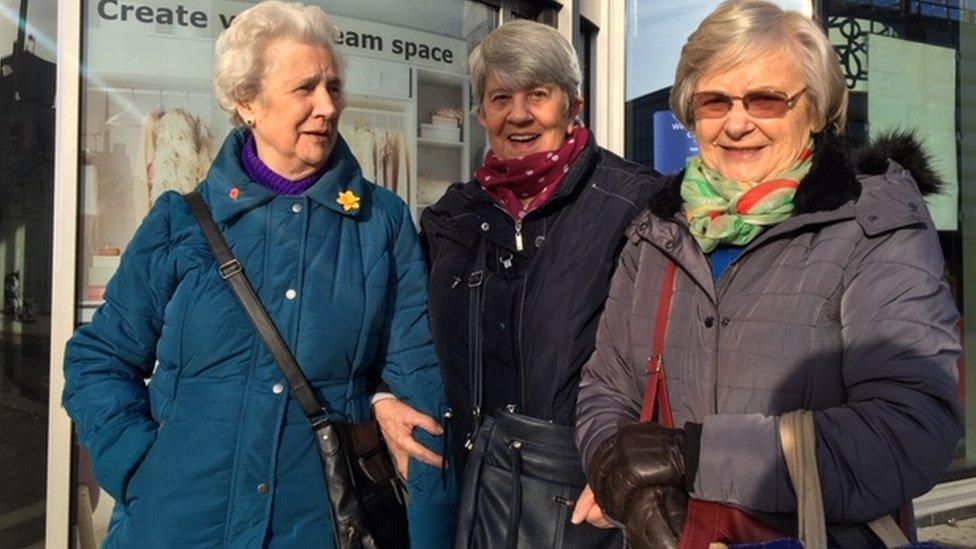
Jean Aitcherson, Linda Curtis and Ann Kirk were all sad at the news
Jean Aitcherson, Linda Curtis and Ann Kirk were on a joint shopping trip to Ikea on Wednesday, arriving on the dot for its opening.
"I can't understand why it's closing," Ms Curtis said, with all three expressing sadness at the news.
She said while the food was good, they did not eat there often. And besides, Ms Kirk added, for them it was all about the shopping.
"There's nowhere else you can go for reasonably-priced furniture," she added.
"Now we'll have to go all the way to Birmingham. And I wouldn't dream of driving all the way to Birmingham - not on my own."
These were not unfamiliar concepts to Mr Hyman.
"There's nothing else quite like Ikea," he said.
"The UK was one of the last developed markets Ikea entered. It offered, and still offers, good, clean, attractive designs at entry-level prices. And for a lot of people in the fairly early stages of setting up home, it's a very attractive option.
"Ikea is a tremendously strong business and no question one of the retailers better able to withstand headwinds."
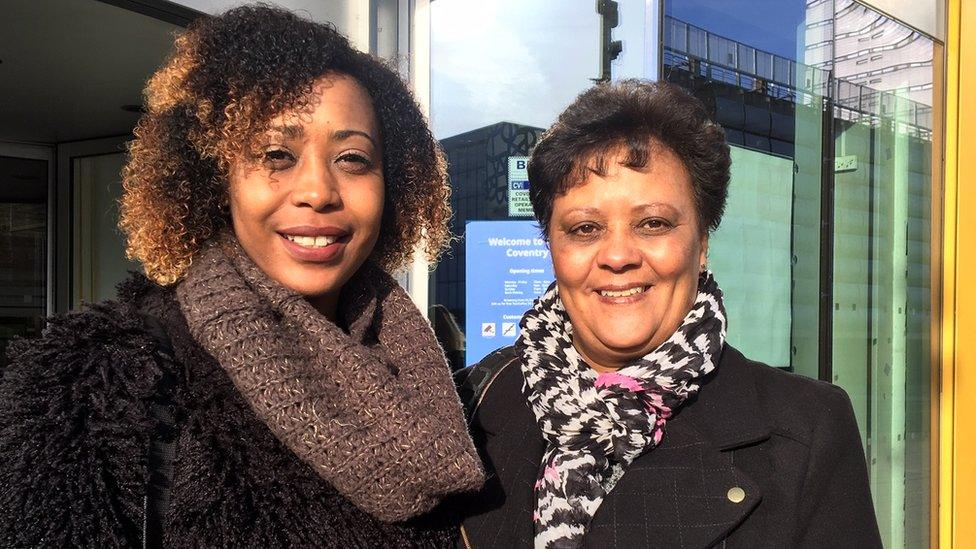
Cleo Maynard was curtain shopping with her mum Julie Platts
A year ago, Cleo Maynard bought her first property. On Wednesday, she brought her mum Julie Platts to the store to help her pick out curtains.
But despite living in Coventry their whole lives, the pair can count on one hand how many times they've visited its Ikea.
Ms Maynard says while the merchandise is affordable, the closure "won't really affect me" as she has done most of her home decoration shopping online. She thinks the internet will spell the end for Ikea.
Her mum, though, takes a different view. "I like coming out to the shops," she says. "I'm old school."
For Mr Hyman, the future lies somewhere between the two positions.
"We're not seeing the end of physical retailing. We'll just go in fewer numbers to fewer stores."
Additional reporting by Riyah Collins
- Published4 February 2020
